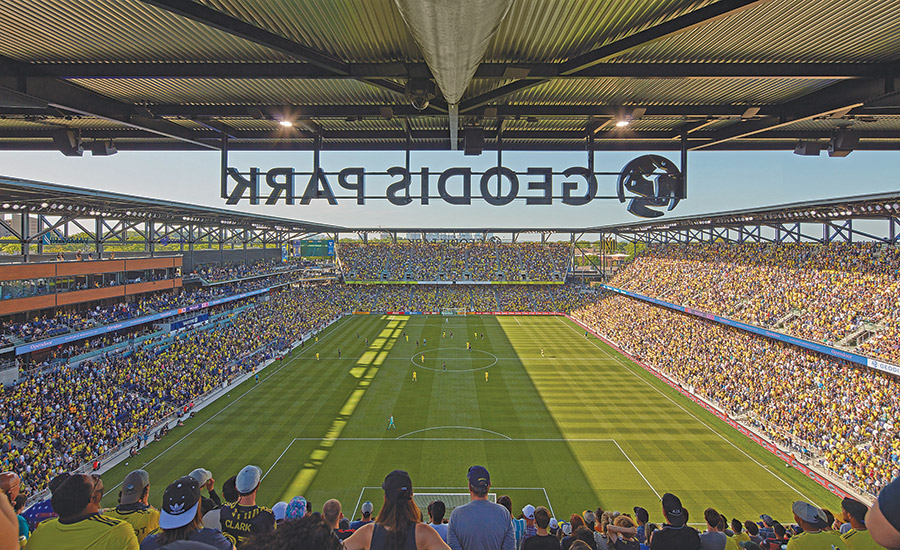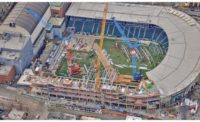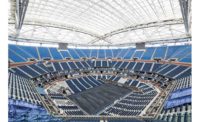GEODIS Park, Nashville SC Stadium
Nashville, Tenn.
Best Project, Sports/Entertainment
Submitted By: Mortensen on behalf of Mortenson | Messer JV team
Owner: The Sports Authority of the Metropolitan Government of Nashville and Davidson County
Lead Design Firm: Populous
General Contractor: Mortenson | Messer JV with Pinnacle Construction Group and Business Resource Group
Civil Engineer: Barge Cauthen & Associates
Structural Engineer: Walter P. Moore
MEP Engineer: ME Engineers
Landscape Architect: Hawkins Partners
The new home of the Nashville Soccer Club, the largest soccer-specific stadium in the U.S. and Canada, overcame pandemic-related issues and even a tornado that destroyed more than 500 light fixtures to finish below budget and seven weeks early, allowing the team to host its first event of the season on May 1, 2022.
For the 30,109-seat stadium, the project team utilized tracking software that outfitted 7,500 primary steel members and more than 12,000 other components with RFID tracker and QR code to track items from fabrication to erection, and used a nearby warehouse to store materials and coordinate just-in-time deliveries.
After the December 2021 tornado destroyed a trade partner’s warehouse, contractors worked with Gephart Electric and Maryland Electric Co. to install temporary light fixtures and keep the project on track, while measures had to be implemented through the height of the COVID-19 pandemic, such as limiting team size and dedicating team members to track safety protocols.
With owners hoping to have Nashville SC’s first game in the stadium, the construction schedule was developed in collaboration with partners and updated weekly, while a 4D model was updated in real time, serving as a consistent, reliable source throughout the project.

Photo courtesy Tom Harris
The 35-person Mortenson Messer team worked to coordinate more than 800 workers onsite during the peak of construction activity, achieving 36% engagement of minority- and women-owned businesses on the project and 49% workforce diversity.
Judges remarked on the strong safety record for the project, which logged almost 105,000 worker hours with no lost-time accidents or recordable cases and a 0.19 recordable incident rate. Crews started every workday with daily stretches and the discussion of trending hazards, weather impacts and high-risk activities.
The stadium reflects the industrial heritage of the Wedgewood-Houston neighborhood with its high canopy structure and the brick-clad ground levels represent the neighborhood’s residential homes. Also, in true Music City form, contractors built a corner stage in the stadium bowl.




